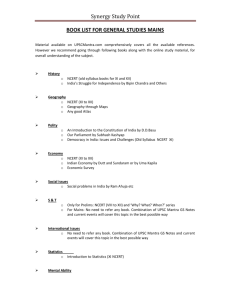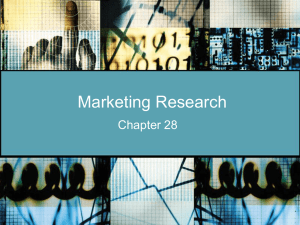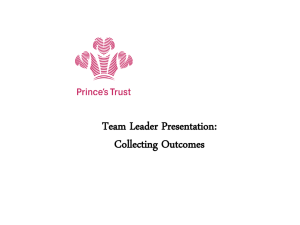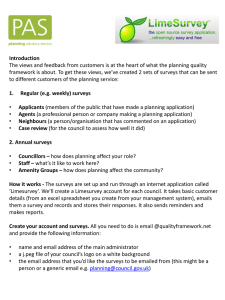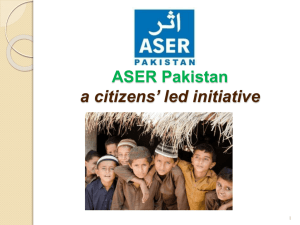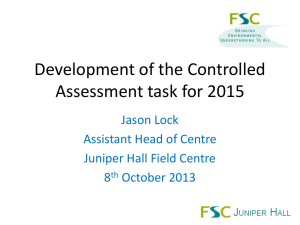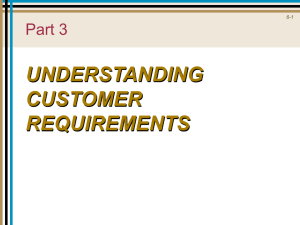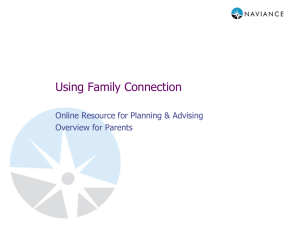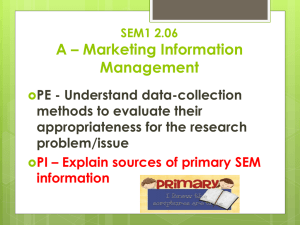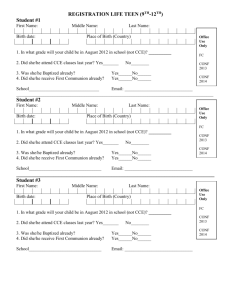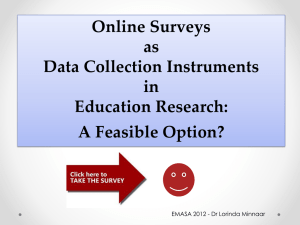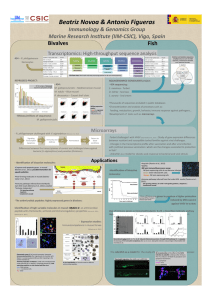Developing Institutional Capacity for Learning Assessment
advertisement
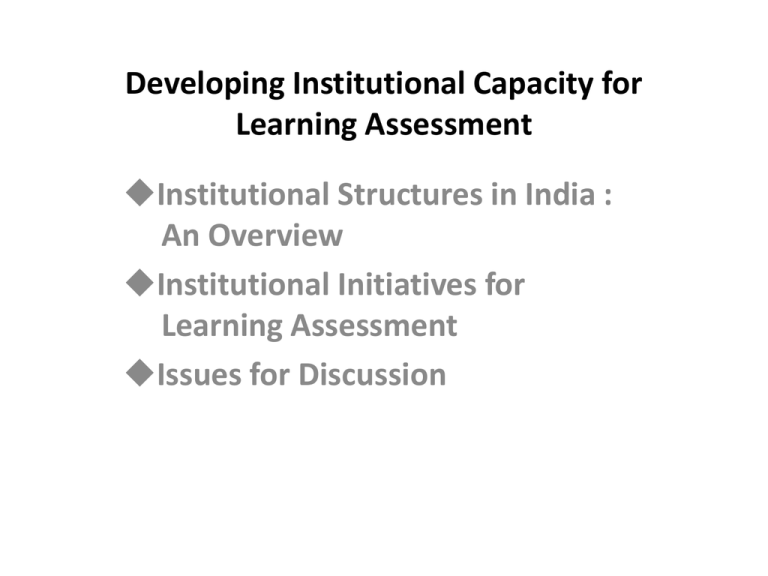
Developing Institutional Capacity for Learning Assessment Institutional Structures in India : An Overview Institutional Initiatives for Learning Assessment Issues for Discussion Institutional Structures-Govt NCERT CRC SCERT BRC DIET State Initiatives in Assessment • NCERT conducts National Achievement Survey at Grades 3 , 5 and 8 and recently grade10 every 3 years. Latest in 20102013. • Survey conducted with help of SCERTs, SIEs for which there are state/district coordinators . • Detailed guidelines cum training module is prepared for quality control. • Recent improvements include Multiple Test Forms, Item Response Theory for equivalence of forms; • States also conduct achievement surveys eg Rajasthan and Gujarat. • For CCE a Source book has been prepared by NCERT. Non State Initiatives • ASER Center, an NGO has been conducting since 2005 annual household based surveys by citizens in rural areas in age group of 5 to 16 in basic reading and maths. About 0 .6 million children are tested annually across sectors including out of school. • ASER has inspired similar surveys in many countries outside India. • Education Initiatives has conducted since 2006 multi –state assessments covering government and private schools in grade appropriate competencies. Provide benchmarks plus gaps. With Gujarat government a Diagnostic Assessment covering 1000 students in grades 3, 5 , 7 and 9 is conducted annually. Issues For Discussion • Some Key Questions: • • • • Who to assess? What to assess? How to assess? Why Assess? Issues for Discussion • Can we discuss Learning Assessment in isolation from Learning outcomes? • How do we define learning outcomes? Are our Basic Assumptions correct? • (1) School system is anchored on the notion of age grade progression with assumption all children are same level. Are they? • (a) Diversity in ages. (5&4 year olds) (b) Sociolinguistic Diversity . • Over 100 m children 2+years below grade level! (ASER) –. Assumption 2: Inputs =Outcomes?! • Children not learning because basic facilities are not thereschools, teachers, textbooks etc. What is happening in classrooms? • Very little discourse on deeper educational issues on why students don’t learn. • Sterile/hostile classrooms, not inclusive. • Time on task studies show maximum time spent on copying—no engagement with content. • Need for recreating ‘emergent literacy’ experiences in preschool/school like language immersion through activities, phonemic awareness, vocabulary , pre mathematical concepts and skills etc. • Need for understanding of Science of learning –pedagogical and curricular expectations to be based on these. Learning Assessment –Lessons learned • Learning Levels very low.-NCERT /ASER –higher order skills not developed. • Purpose of Assessment &Stakes : Resistance to large scale surveys because of associated stakes--administrators, teachers, parents….may lead to large scale manipulation of scores ! • Important to have consensus on large scale assessment only diagnostic to initiate or validate a process of educational reform and school improvement. • Experts needed to guide this process. Lessons Learned • Focus on Early Grades : Foundation for later learning; yet children faltering.. • Sample based assessment and CCE are mutually supportive. Former provides health check of system; latter of individual. Institutional capacity needs to be strengthened for both. • Survey results need to be shared with teachers, principals, administrators and also parents and community in simple language. What capacities should be strengthened? • Early learning: Need to consolidate learnings on how children engage with early reading and early maths. • Tools: Standardized reading assessment tools in different languages . • Questions/items: Questions for tapping higher order skills. • Non academic areas: Assessment in non-academic areas. • Survey designing: Designing and conducting timely and valid large scale surveys. • Data management • Use of data: Understanding , interpretation and dissemination of learning data findings. • Technology as an enabler in Assessment: how do we use it? Whose Capacities to be strengthened? Suggested Activities • POA for setting of specific and realistic stage wise not grade wise learning goals—(a) preschool; (b) grade 2 and © grade 5. • Review Pre/School and Teacher education curricula from this perspective of goals, understanding of how children learn; contextual diversity; integration of CCE as part of teaching learning cycle. • Time bound plan to review/develop a system of annual assessment of stage wise learning goals and its dissemination. • Universities to offer certificate /diploma courses on Science of learning and Assessment. • Action research based on a field lab concept.
